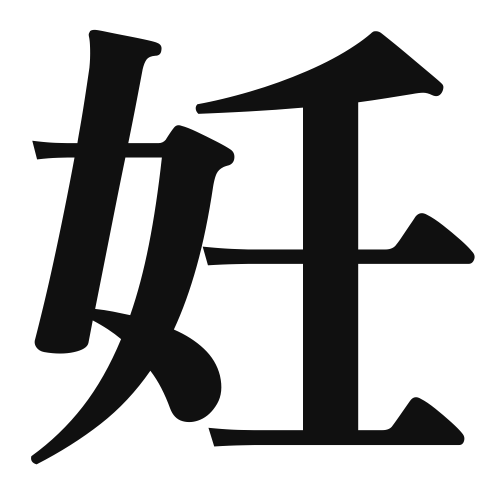1. Overview of Meaning
The kanji “妊” (pronounced “nin”) means “pregnancy” or “to be pregnant.” It is used to refer to the state of carrying a developing fetus in the womb.
2. Formation and Radical
The kanji “妊” is a combination of two components: the radical “女” (meaning “woman”) and the phonetic component “忍” (pronounced “nin”). This structure indicates that the concept is related to women and the process of pregnancy.
The radical “女” is commonly associated with female-related meanings in various kanji characters.
3. Examples of Usage
Common words and phrases that include “妊” are:
- 妊娠 (にんしん, ninshin) – pregnancy
- 妊婦 (にんぷ, ninpu) – pregnant woman
Example sentences in daily conversation:
- 彼女は妊娠しています。 (かのじょはにんしんしています。) – She is pregnant.
- 妊婦さんには特別なケアが必要です。 (にんぷさんにはとくべつなけあがひつようです。) – Pregnant women need special care.
4. Synonyms and Antonyms
Similar kanji with related meanings include:
- 出産 (しゅっさん, shussan) – childbirth, which refers to the act of giving birth.
Antonyms include:
- 不妊 (ふにん, funin) – infertility, which refers to the inability to conceive.
5. Cultural and Historical Background
The kanji “妊” is deeply connected to Japanese culture, where family and childbirth are significant aspects of life. In traditional Japanese society, pregnancy and motherhood are celebrated and respected.
Proverbs and idiomatic expressions related to pregnancy include:
- 「妊娠は幸せの始まり」 (にんしんはしあわせのはじまり) – “Pregnancy is the beginning of happiness.”
This reflects the cultural value placed on family and the joy associated with bringing new life into the world.
